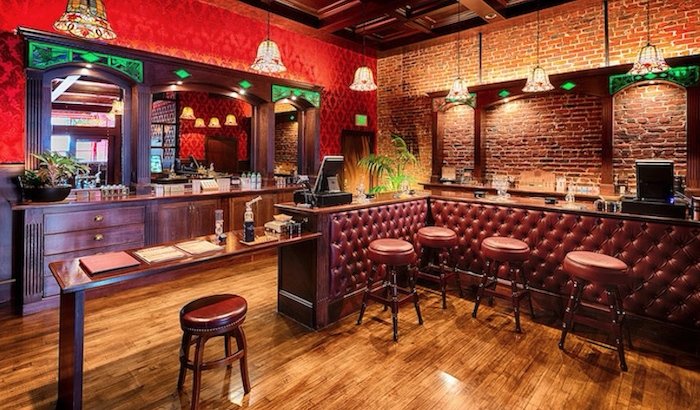
Regulators discuss best practices in other markets, policy priorities, and long-term timeline
At last Thursday’s meeting of the Massachusetts Cannabis Control Commission, Commissioner Nurys Camargo previewed what the process might look like leading up to the Bay State finally getting social consumption licensing.
“One of the things I want to do throughout this process,” Camargo said, “is really educate consumers, canna curious folks, the public, anyone who’s interested in this topic because there’s a misconception right now that social consumption only means a bar or a lounge.”
The commissioner spoke about a recent fact-finding mission she and CCC staffers made to California, saying, “Sitting down with business owners and leaders to discuss the success and the struggles of social consumption has been invaluable for us to hear in order to eventually roll out what social consumption will look like in Massachusetts. We need to make sure that we are welcoming establishments that are safe for consumers and for the community and are really worth the investment for potential owners and investors.”
On Monday, Camargo and other commissioners laid more foundation on top of several months of preliminary research. Commissioner Bruce Stebbins, who ran a working group with Camargo to address social consumption, noted how they hosted three public listening sessions, with turnout ranging from prospective license holders to people who are simply interested. He also recognized the various groups they reached out to: Social Equity program participants, chiefs of police, the group Equitable Opportunities Now, the Department of Public Health, regional tourism councils, and the state’s Executive Office of Public Safety and Security.
Stebbins and Camargo have also communicated with regulators and stakeholders in other states—Arizona, California, Colorado, Illinois, Michigan, New Jersey, New Mexico, Nevada, and New York. And they urged their colleagues to follow their path, with Camargo telling fellow policy makers that “when you actually see these locations,” whether they’re licensed or illicit, “it’s so different when you talk about and try to develop policy.”
Regarding California, where there are more examples of licensed social consumption establishments than in any other state, Camargo recognized how they are “heavy on lounges connected to retail,” as in a place where you can walk in, purchase products, and get stoned. As an example, she spoke about Rose Mary Jane in Oakland, where she saw retail plus a mocktail bar along with a consumption area (that spot has closed since their visit due to any number of reasons ranging from “fraud to blackmail to misaligned ethics” to an “unaffordable lease and burglaries,” according to news reports).
“The model works for retail locations that have foot traffic and are constantly having events and very engaging activity in their space,” Camargo said. Business owners told her they have to work hard to generate adequate foot traffic. “Just because there is a lounge space doesn’t mean that it is always going to be occupied.”
Giving an example of a practice potentially worth emulating, Stebbins said that in Nevada, some municipalities are pledging to avoid towing or ticketing cars around social consumption venues just in case people seek alternative transit home as a result of being too high. As for other promising ideas, Camago discussed so-called cool-down rooms, which she described as “designated spaces for people to either lay down, have some water, have some snacks.” “Everybody does it differently,” she said, with some offering CBD products to help get people back to normal before they walk out.
Camargo also said her team has consulted sellers of infused foods, including “legacy operators who do private dinners in other states,” and is watching current legislation making its way through the California legislature. As for horror stories, she said the worst thing they have heard happened in Colorado, where someone fell asleep at a social consumption establishment.
Moving forward, Massachusetts regulators said they’ll entertain the full gamut of possibilities and potential pitfalls, with a focus on devising good policies for: indoor ventilation; clean air regulation; outdoor smoking regulations and visibility; and impaired driving regulations—including for cyclists—which Camargo called “one of our top priorities.”
As for the question on everyone’s mind—what’s the timeline for when all of this might happen?—Commissioner Stebbins said he didn’t want to commit to dates, but emphasized that work is underway. Camargo said commissioners are aware that many people, including Social Equity and Economic Empowerment license holders, are currently leasing or eyeing physical spaces for the purpose of opening social consumption venues, all while “wondering if this will be an avenue they want to travel.”Asked about a timeline during a media availability after Monday’s meeting, Camargo said, “There’s still a lot of meetings to be had and a lot of research.” Saying that her group that’s dedicated to the topic will restart in-house talks tomorrow after a brief hiatus while the agency finalized regulatory rewrites around Host Community Agreements, she added, “There’s a lot of work ahead.”
























